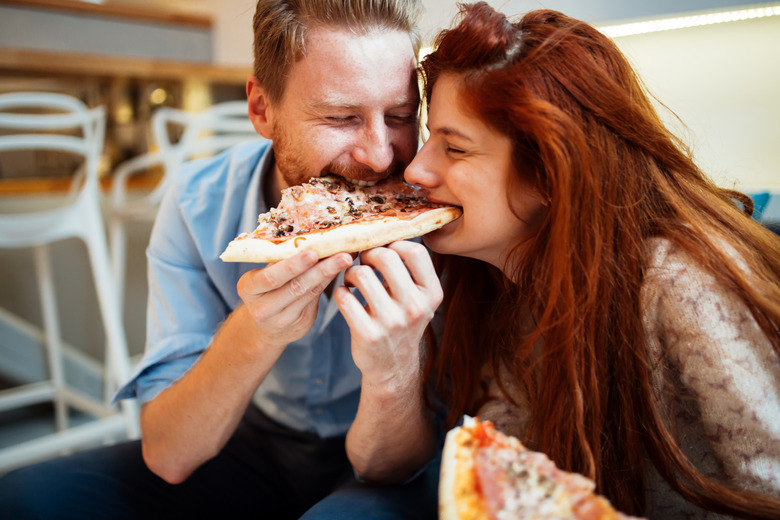Science Says The Healthiest Food Is Food You Actually Want To Eat
Say you get home after a long day and realize you're hungry. You open the fridge, craving a cupcake. No, you tell yourself. Do not eat that cupcake. You understand that despite your craving, you've read again and again that it's not a healthy choice. So you scour your pantry for alternatives — foods that pass your "health" screening, that you can eat without the pang of guilt and grease weighing you down after you've dined and devoured.
You find rice cakes. Sure, you think. I can make those taste good. You've read that they're good for you. Maybe you slather one with peanut butter. Maybe you slice a banana and lay the coins on top.
But let's be honest: Who has ever enjoyed a rice cake when they really want, well... a real cake? The chances are good that you don't enjoy your snack. You're physically full, but unsatisfied.
You're still consuming carbs and fats from that snack — and a little arsenic, but you know that's no big deal. In theory, a nice balance.
But according to science, you might not actually be absorbing the benefit from that unsavory snack you choked down. According to science, you might have been better off nutritionally having eaten and enjoyed the heck out of a cupcake instead.
You see, the science tells us that nutrient absorption is somewhat reliant on enjoyment. If you're on a diet and eating a bunch of bland, banal food, you could actually be eating less healthily than you would be if you just ate the food you wanted. According to a relatively overlooked study conducted in 1977, people absorb more nutrients from food they savored than from food they didn't enjoy.
The study collected nutrient absorption data from two groups: A group of Thai women and a group of Swedish women. They fed both groups a Southeast Asian dish reportedly adored among the Thai women and not so popular among the Swedes. The Thai women absorbed nearly 50 percent more nutrients than the Swedish women, resulting in better nutrition and health benefit from the meal overall.
Determined to discern whether enjoyment (and not a difference in biology) was the culprit behind this nutritional change, the researchers remade the Southeast Asian meal in an unappealing form — they took the same food and puréed it into a mushy paste. The Thai women thought this looked gross. When they consumed the meal — made of identical ingredients — they absorbed 70 percent less iron than they had before. They ate the same food — they just enjoyed it less.
The brain is a powerful thing. A huge part of the mechanism of digestion is in response to signals sent by the brain. When you like the way your food tastes, your brain is much more eager to send those messages to digest.
Research has been relentlessly confusing lately. Sometimes, a low-sugar diet works and sometimes it doesn't. Sometimes, high-fat low-carb is the way to go, and sometimes that's all nonsense. Wine prevents disease, according to a few large investigations; but in others, it has an entirely opposite effect.
What if all of that is nonsense? Maybe there is no "one size fits all" diet plan that results in the best health outcomes — because every data set, every participant group, and every human being is going to be inherently different. They're going to enjoy different foods.
Maybe, the best diet to go on is the one where you eat whatever food you actually want.
Woah. A wild suggestion, I know. But an important one.
Of course, if you're eating doughnuts for breakfast, lunch, and dinner, you're probably going to hit a point where you don't enjoy doughnuts anymore. You might even crave vegetables.
Your body is smart: It often craves what it needs. Do you ever eat small amounts of food all day and before bed find that you crave ice cream like no other? Your brain was likely receiving prolonged hunger signals and therefore tells you it wants some calorie- and fat-dense foods.
Have you ever gone to McDonald's for lunch and got home craving a huge salad? That's the same result — just flipped in the opposite direction.
The trouble comes when we demonize certain cravings and glorify others. It confuses the natural flow of things; it generates guilt, frustration, and eating lots of food you don't really like.
And absorbing fewer nutrients as a result.
Strategies like mindful eating, "eating like the French," and intuitive eating are all offshoots of a similar practice: Eat what you want, when you want it, and tune in to your body. It will guide you in the right direction — we promise.
